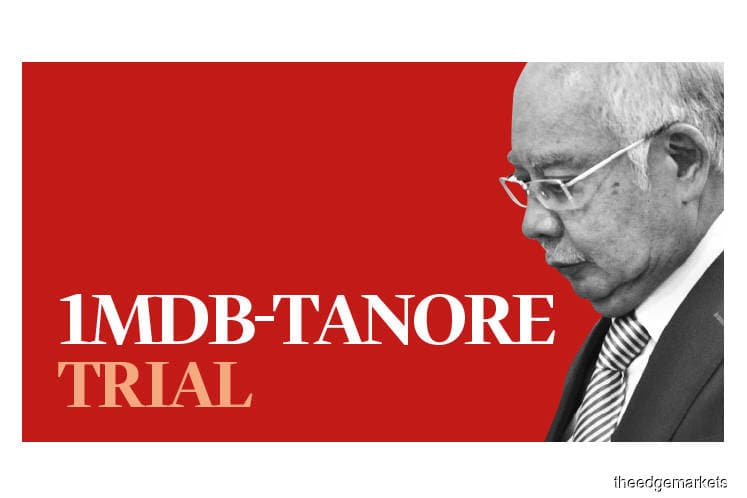
This article first appeared in The Edge Malaysia Weekly on September 23, 2019 - September 29, 2019
WAS the internal politicking in Terengganu to blame for the termination in 2009 of the Terengganu Investment Authority (TIA) — the precursor to 1Malaysia Development Bhd — or was it because the federal government hijacked the fund and sidelined the state?
Amid the finger-pointing over the TIA fallout that has emerged in the trial of Datuk Seri Najib Razak, a key factor to consider is the testimony of former TIA CEO Datuk Shahrol Azral Ibrahim Halmi to a Public Accounts Committee probe into 1MDB in 2016, which appears to be inconsistent with other witness testimony.
In his PAC testimony, Shahrol said TIA had little option but to proceed with a RM5 billion bond issuance in May 2009 as the fund’s special adviser, Najib, had invoked section 117 of the fund’s articles of association. Section 117 accords the special adviser ultimate say over the fund.
Shahrol implied that Najib wished for the bond issuance to proceed despite the insistence of Terengganu Menteri Besar Inc (MBI Terengganu) that the paper not be issued as certain terms and conditions that were requested had not been met.
Last week, lead defence counsel Tan Sri Muhammad Shafee Abdullah produced minutes of a Cabinet meeting dated July 8, 2009, showing that the federal government was concerned over the lack of investor interest in TIA due to the Terengganu government’s insistence that it control the fund. He said Putrajaya had to consider the opportunity cost of further delays in TIA’s investment decisions and that it was initially reluctant to take over the fund but had little choice given Terengganu’s interference in TIA’s investment decisions.
For the state, the issuance of a RM5 billion sukuk without the representation of MBI Terengganu — the major shareholder of TIA — was not to be countenanced, especially since the federal government guarantee of the sukuk did not follow its terms, as its acrimonious letter dated May 22, 2009, to Najib reveals. In the letter, Terengganu attempted to suspend the Islamic bond issuance, when, in fact, the debt paper had been issued, or at least partially issued.
Three days after the letter, Shahrol was said to have bulldozed the issuance through, despite the objections of MBI Terengganu. However, he told the PAC that the issuance of the sukuk issuance was a directive from the then prime minister.
Included in the 106-page report presented to parliament in 2016, the PAC said Shahrol did not follow orders to stop the issuance of the RM5 billion Islamic medium-term notes and did not follow the instructions of the board, as he argued that the power actually lies with the shareholder, in accordance with Article 117 of TIA’s articles of association.
Yet, in May 2009, TIA was in fact still owned by MBI Terengganu. It was only taken over by Minister of Finance Incorporated on July 31.
Furthermore, it was revealed during the trial that Article 117 was only inserted into the articles of association four months later, on Sept 2, 2009. Article 117 states that any financial commitments, restructuring or anything to do with the government guarantee — for the interest of the company, country or government policy — requires the prime minister’s written approval.
Companies Commission of Malaysia’s registrar of companies Rafidah Yahaya had earlier testified that Najib wrote Article 117 into TIA six months after he was appointed prime minister in April 2009.
Senior deputy public prosecutor Datuk Seri Gopal Sri Ram, in his opening statement, contended that Najib inserted the article into TIA to place himself in sole control of important matters concerning the business and affairs of the company.
“In short, he was its plenipotentiary,” Sri Ram said.
He went on to say that Najib had used his influence over 1MDB — through the invocation of the article as well as his position as prime minister and minister of finance — to carry out certain abnormal transactions with undue haste.
“The ultimate aim of the accused was to obtain gratification for himself. He succeeded in achieving that aim,” he said before the start of the trial.
It is understood that while Article 117 was never invoked directly, the prosecution would try to prove in the coming days with the next witnesses, beginning with Shahrol, who later became 1MDB CEO, that it was indirectly used in order for Najib to sign resolutions on certain financial matters.
This is similar to the move used in 1MDB’s troubled former subsidiary, SRC International Sdn Bhd, as the graft trial revolving around Najib’s alleged embezzlement of RM42 million from the company showed.
Using the clause, individuals linked to Najib as well as fugitive businessman Low Taek Jho were appointed to the board of 1MDB as well as its energy unit Edra Power Holdings Sdn Bhd.
Save by subscribing to us for your print and/or digital copy.
P/S: The Edge is also available on Apple's AppStore and Androids' Google Play.